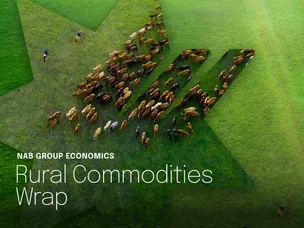11 June 2025
Alison Blanshard, NAB Executive Regional & Agribusiness, Queensland
March 14, 2024
Hitting agri sustainability standards needn’t be hard. Beef processor and exporter Greenham is working with producers to make compliance simpler and deliver tangible on-farm benefits that make the ROI worth the effort.
By Business View
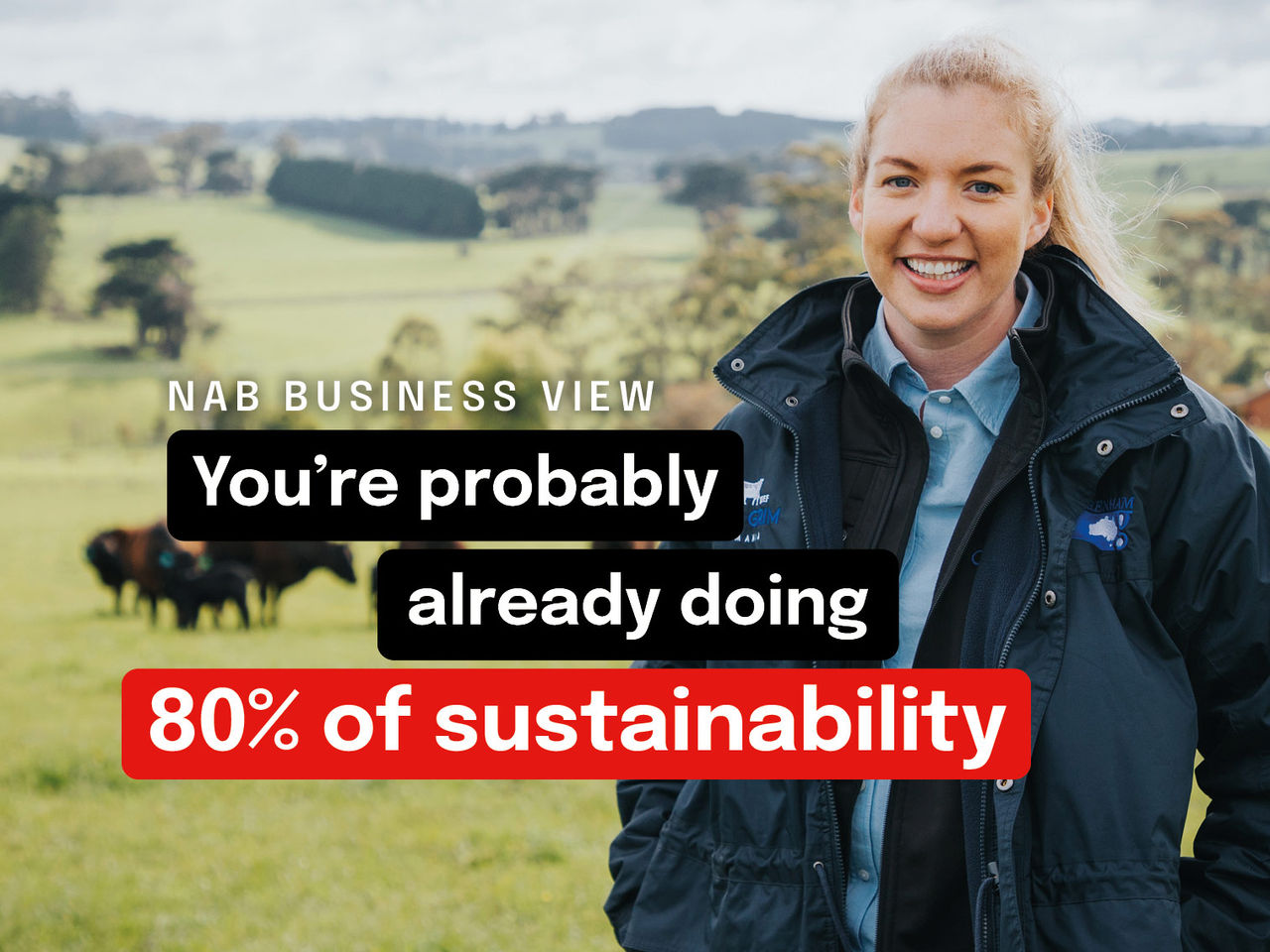
For many beef producers, the key to unlocking access to premium markets for sustainably produced beef isn’t in overhauling their on-farm practices but in verifying and showcasing their existing good work to customers.
Helping them achieve this is beef processor Greenham.
Victoria- and Tasmania-based Greenham first partnered with producers three years ago to understand how a sustainability program could both practically work on-farm and meet growing market demand for beef with transparent and robust environmental credentials.
After piloting their Greenham Beef Sustainability Standard (GBSS) in 2022, and launching in November 2023, Greenham Livestock Supply Chain Manager Jess Loughland says Greenham found most producers were already meeting “80% of the requirements”.
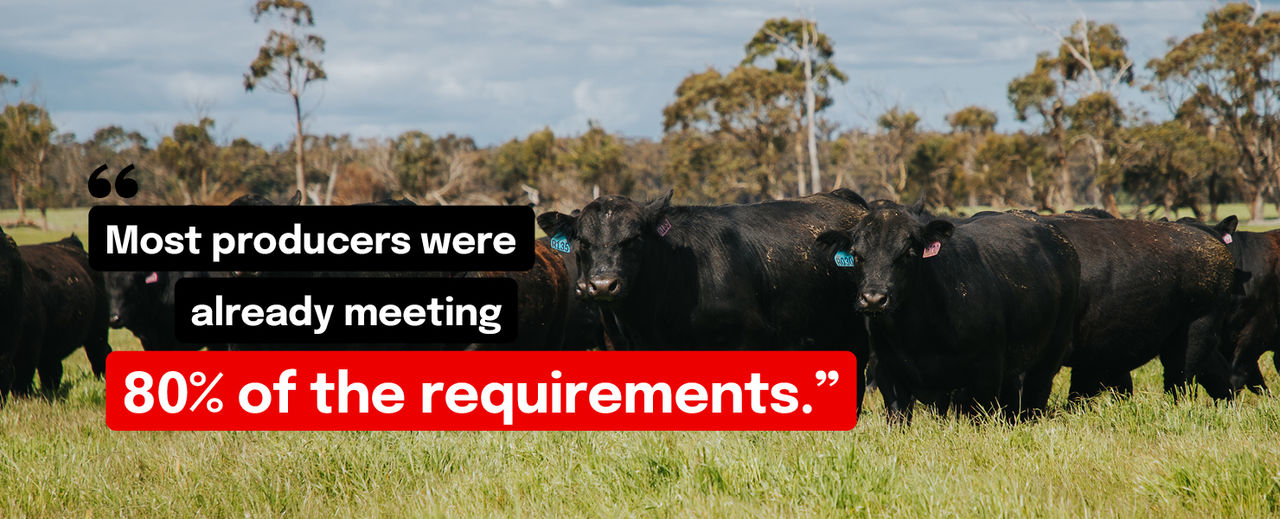
“Most producers we’ve worked with are already tactically grazing and keeping an eye on ground cover or monitoring their soil and waterway health. For the majority, it’s about documenting those plans and practices and verifying with independent auditors so we can not only maintain but grow customer confidence in our beef products.
“Suddenly, it doesn’t seem like a big overwhelming task when you’re probably already meeting 80% of the requirements. And with support from the Greenham team who can assist farmers with getting any additional records or action plans in place, you can focus on running the farm.”
For Greenham, work to develop an on-farm sustainability program started with the growing consumer appetite to know more about the farming practices behind their food.
“Customer demand for beef products with verified sustainability claims has been growing for several years, evolving from a focus on animal welfare and ‘natural’ beef to how farming practices impact the land and surrounding environment,” Loughland says.
“While these conversations were happening with customers, Meat & Livestock Australia took the first steps to provide a blueprint for industry with the Australian Beef Sustainability Framework and CN30 (carbon neutral by 2030) initiatives.
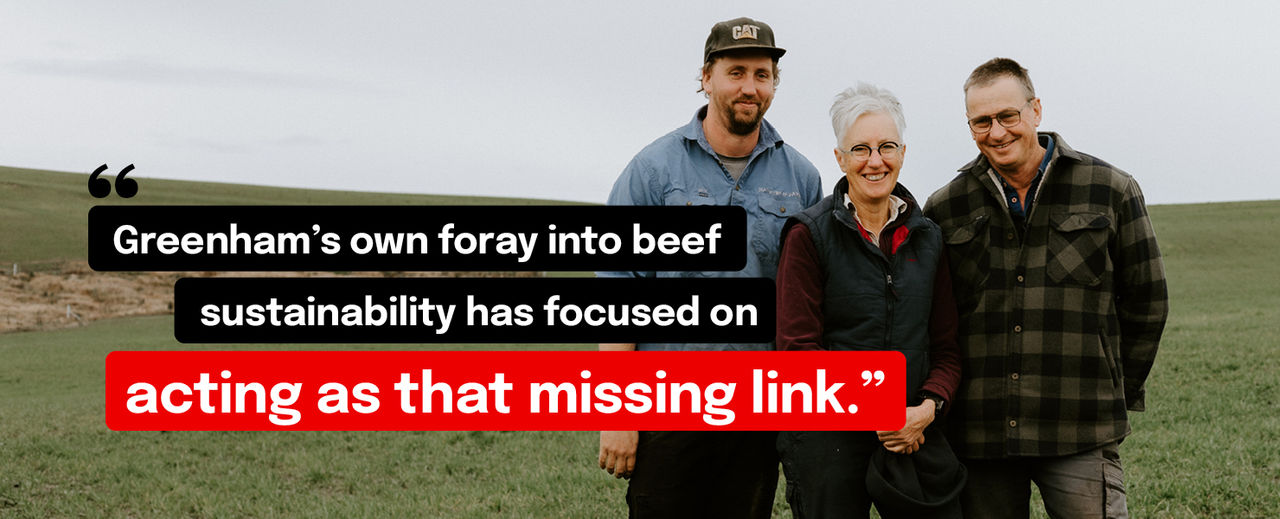
“We saw the opportunity for us in translating these frameworks into an on-farm program that gave producers actionable next steps.”
By working with industry, customers, technical experts and, most importantly, producers to develop its own program, Greenham aimed to ensure its standard had market pull-through and was backed by the latest science to deliver meaningful value along the supply chain.
“Our goals were twofold: to deliver consistent premium-quality beef raised in a manner that aligns with our customers’ values, and to drive adoption of best-practice management to protect the land and communities in which we operate for future generations,” Loughland says.
“We’ve tried to tailor the accreditation process and build some tools, starting from a self-assessment, so that we can get a feel for where producers are at today and where they may need some support.
“There are different ways for producers to show evidence of compliance, either through existing record-keeping systems or through templates that we provide. We’ll walk through how to fill those out, in many cases without producers having to make significant management or business planning changes.”
By applying the GBSS framework, producers (and the rest of the beef supply chain) can see the impact of current practices, along with gaps that might need to be addressed.
In turn, that helps producers understand the financial impact of what they’re already doing, and of business decisions they might make in the future.
“To move beyond a tick-a-box standard, it was crucial that for every requirement in the standard there was a clear on-farm ecological or production benefit,” Loughland says. “It’s really about saying, ‘How can we support producers to manage their businesses in a way that is supportive of the environment, enhances biodiversity, improves our carbon sequestration and carbon footprint, and shores up our market access?’.
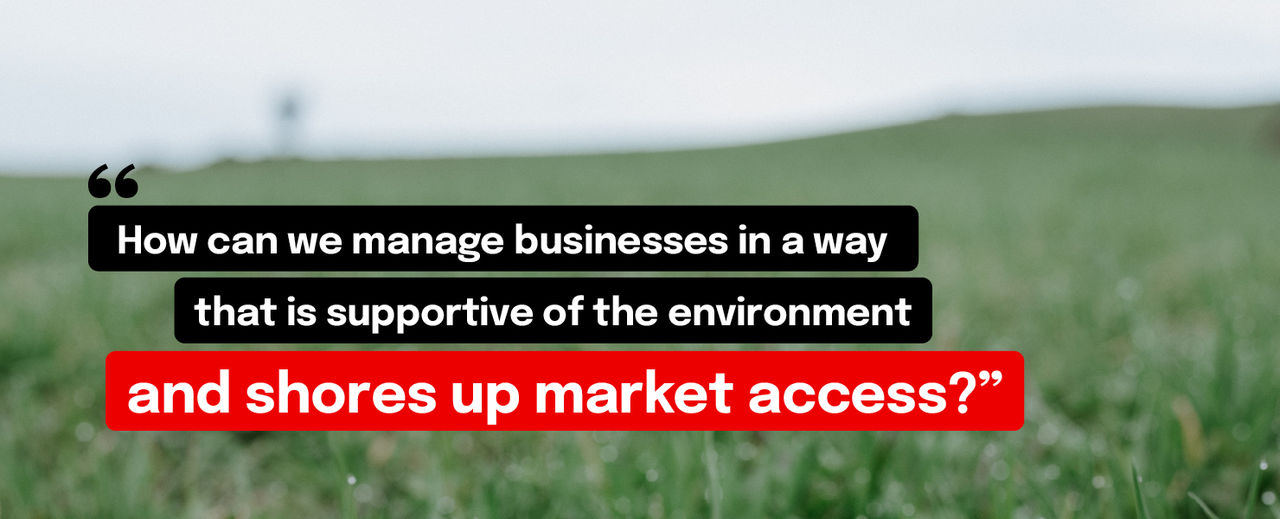
“But how do we do that in a way that actually drives a profitable business as well?”
Greenham covers the cost of third-party audits and supports producers through practical templates and tools that provide a starting point for newly accredited producers.
“If you’re undertaking practices that decrease your emissions, for example, that would typically be things like genetic selection or feed efficiency for nutritional management so those animals are reaching market weight sooner,” Loughland says.
Carbon sequestration is another example. Improving it can increase soil fertility, improve soil health and water-holding capacity and reduce the risk of erosion, which all help build resilience to extreme weather events such as drought.
Greenham offers producers that meet its Tier 2 requirements a 10¢/kg premium, but Loughland says that broader financial benefits include opening new markets and protecting premiums in existing ones.
In the US, for example, the large majority of domestic beef production is grain-fed; consumers there are looking to Australia for grass-fed or regenerative beef options. “They’re willing to pay a premium, or at least offer longer-term, secure supply partnerships,” Loughland says.
So for those producers already doing all the right things, accrediting their actions around sustainability to a recognised standard demonstrates their best-management practices to conscientious consumers.
NAB Agribusiness Executive Josie Zilm enthuses about this market and its subsequent greater returns. “For those wondering whether farmers would ever be paid more for producing beef linked to sustainability standards, here it is!” she says.
“Greenham has tapped into the market and set up the supply chain and accreditation process backed by the Australian Beef Sustainability Framework to make it happen. This best-practice sustainability linkage between consumers, supply chain and producers means the price premium it can command from the consumer flows right through to the farm gate.”
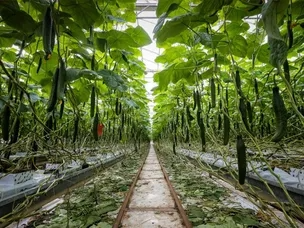
ARTICLE
11 June 2025
Alison Blanshard, NAB Executive Regional & Agribusiness, Queensland
